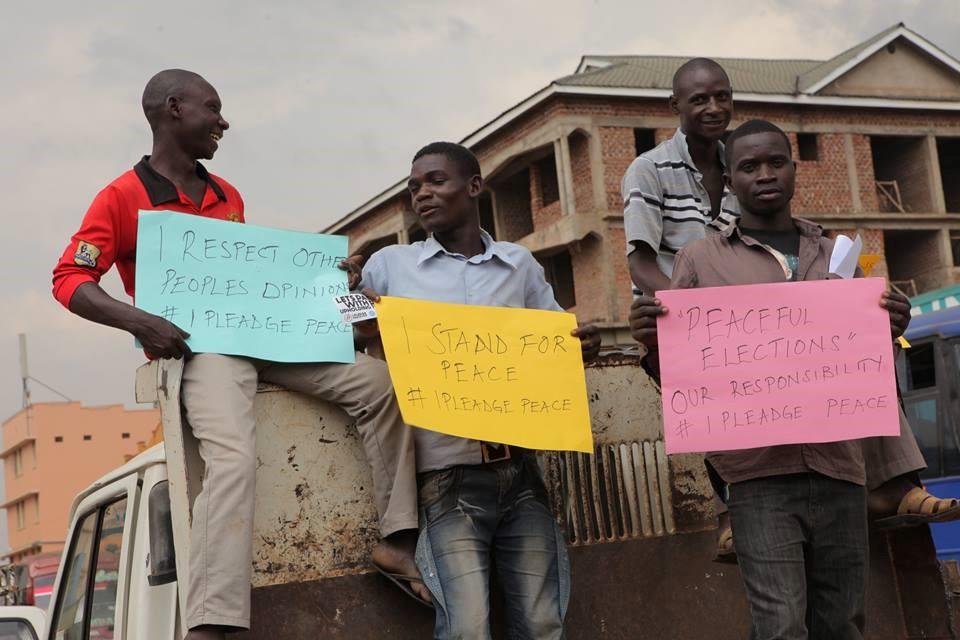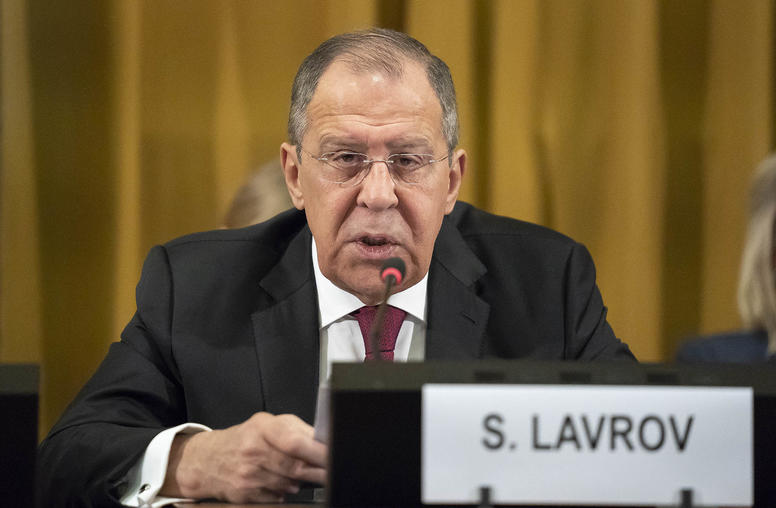Two Ugandans, Hassan Ndugwa and Nulu Naluyombya, are campaigning to ensure that this month’s elections challenging President Yoweri Museveni’s 30-year rule are peaceful, even as the government has arrested critics and opposition party workers. Drawing on concepts and skills of dialogue, storytelling and active listening that they learned in USIP’s Generation Change Fellows Program, the two estimate their message has reached 20,000 people.

Hassan and Nulu said they have crisscrossed the country, starting with an event in December 2015 in the capital Kampala that drew 150 people from civil society organizations, youth and women’s groups, as well as religious leaders, government officials and the police. They join a coalition of other youth-led programs, like #IChoosePeaceUG, that are dedicated to elevating messages of peace during the election cycle. The goal is to convince citizens to engage in the election campaign in non-violent ways rather than getting involved in the kind of violence that already has broken out during the primary season.
“Finally people understood that supporting different candidates does not mean we are enemies but people with different views.” Generation Change Fellow Nulu Naluyombya.
The U.S. State Department has warned that excessive use of force, arrests of journalists and obstruction of opposition party rallies in Uganda have created an “electoral climate of fear and intimidation and raises questions about the fairness of the process.” The Feb. 18 election pits Museveni, 71, against long-time opposition leader Kizza Besigye and former Prime Minister Amama Mbabazi. A prominent aide to Mbabazi’s campaign has disappeared under unclear circumstances, according to the Reuters news agency.
Although the campaign period has featured Uganda’s first ever U.S.-style presidential debate, which Museveni skipped, media coverage of the elections has been hampered by intimidation and excessive government regulation of media outlets that provide air time to opposition candidates. The political opposition and human rights groups accuse the ruling party of wielding a million-strong force of official “crime preventers” to intimidate the opposition. The government, for its part, accuses opposition candidates of forming youth militias.
Elections tend to be a key magnet for conflict to turn violent. USIP runs programs aimed at preventing such violence and conducts research to study which methods might be more effective under certain conditions. Public education, citizen consultations and peace messaging are among techniques often used to lessen the risk of tensions turning violent before, during and after elections, said USIP Senior Program Officer Jonas Claes in a March 2015 article examining the range of approaches.
'Generation Change'
USIP adopted the Department of State’s Generation Change initiative in 2014 and has trained 73 young civic leaders in 10 countries under the fellows program. Hassan, a senior program coordinator with Uganda Muslim Youth Development Forum, which works to prevent extremism and youth radicalization, and Nulu, founder and executive director of Success Chapter, which trains young women in basic life skills, began their fellowship with USIP in 2014.
Both of them say the program gave them a better understanding of how conflict arises in societies and how to manage it peacefully.
“Before the program, I always thought conflict was a bad thing or it’s a negative thing,” Nulu said in a Skype interview. “After the training, I realized conflict is not necessarily a negative thing, but how you handle the conflict is going to determine whether the outcome is going to be a negative or positive.”
That, in turn, is likely to determine whether “people become violent or non-violent,” she said.
“Understanding how non-verbal communication and storytelling are very important aspects of communication, we incorporated skits in our campaigns to further drive the peace message home,” Hassan and Nulu said in a joint e-mail outlining their work.
A campaign sketch they developed in multiple local languages shows a husband and wife supporting different candidates without letting their political choices affect the peace at home.
“Putting the message in a skit helps to break it down for people who don’t understand” English, Nulu said. And “it’s fun and interactive.”
Having learned through USIP the difference between debate, which can stoke conflict, and dialogue, which can promote understanding, the pair encourages Ugandans to “use dialogue instead of debate so as to stay peaceful in this period” as they discuss support for different candidates, the two leaders said.
Active Listening
Hassan and Nulu said the learned skill of active listening has helped them address different groups of citizens with varying levels of education and economic status without belittling their audience.
Leadership training they received as USIP fellows helped them create partnerships with other groups as well as the Ugandan police, which provided security for their efforts and was crucial in their campaign across eight districts that are more likely to experience violence – Masaka, Kampala, Mukono, Mbarara, Kanungu, Fortportal, Jinja and Mbale, they said.
Unlike many non-governmental organizations working to prevent election violence through TV talk shows and advertisements, Hassan and Nulu said their efforts are focused on direct contact with citizens and involving them in generating ideas and solutions. Rather than organize events in hotel conference rooms, they focused on engaging citizens living in rural communities, reaching out to people in their homes and towns.
Approaching “people on their motorcycles or people who’re in their gardens, and giving them these messages was a powerful part of the campaign,” Nulu said. “Being able to reach people, most of whom don’t have TV sets, don’t read newspapers, they’re not even on Facebook … was exciting and powerful.”
“Finally people understood that supporting different candidates does not mean we are enemies but people with different views,” Nulu said.
With both political parties threatening to not accept defeat, Hassan and Nulu recognize the potential for violence after the elections. They acknowledge that their work will not end on February 18, and that building a more peaceful Uganda will be a long-term effort.



